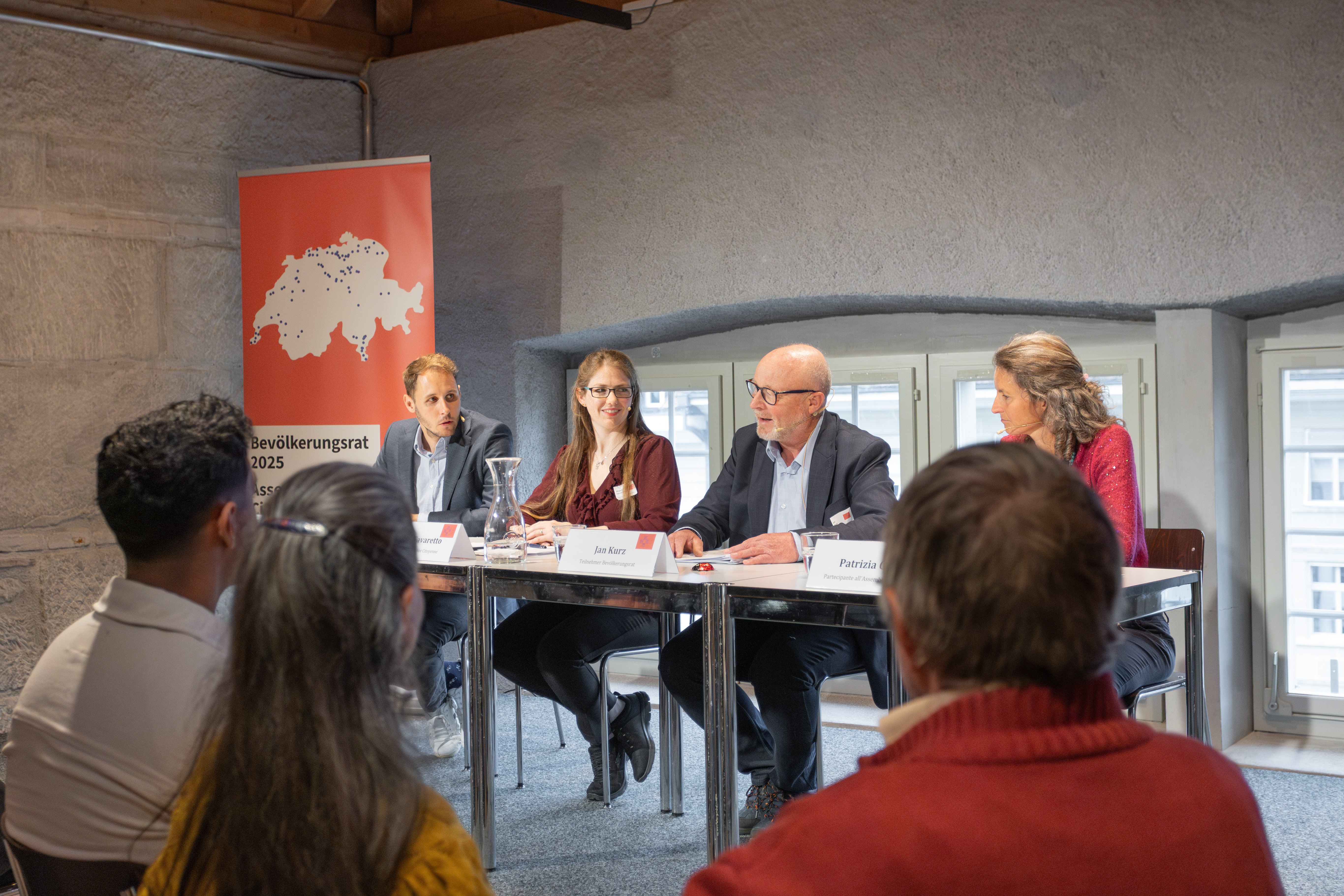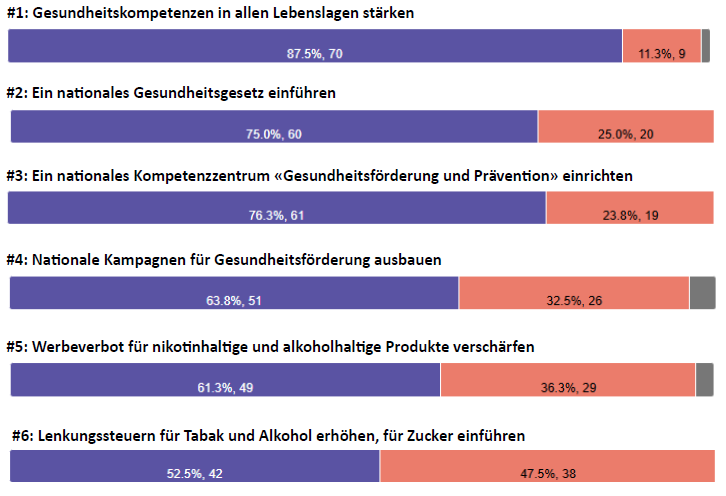Citizens' Assembly presents six reform proposals on health promotion and prevention
At a media conference, the Citizens' Assembly presented six proposals for reform in the areas of health promotion and prevention, which were negotiated in a five-month process involving 100 randomly selected residents. They reflect the reforms that the population considers particularly urgent in order to promote health and reduce healthcare costs in the long term.

Press release
At a media conference, the Citizens' Assembly presented six proposals for reform in the areas of health promotion and prevention, which were negotiated in a five-month process involving 100 randomly selected residents. They reflect the reforms that the population considers particularly urgent in order to promote health and reduce healthcare costs in the long term.
The proposal to strengthen health literacy at all stages of life—through more educational opportunities and more targeted training for professionals so that people can make informed decisions about nutrition, exercise, and mental health—received particularly high approval (87.5%). The introduction of a national health law was also clearly supported (75%). This would give the federal government greater powers in health promotion and prevention and enable better coordination with the cantons and municipalities. This initiative is complemented by the idea of a national center of excellence for health promotion and prevention, which would pool knowledge, promote innovative projects, and improve networking between stakeholders.
The Citizens' Assembly also called for the expansion of national information campaigns to raise awareness of health-related issues among the general public. Incentive taxes were also supported: existing taxes on alcohol and tobacco are to be increased and new taxes on sugar introduced. In addition, the Council advocated stricter advertising bans on nicotine and alcohol products. These are intended to provide a targeted financial incentive for healthier consumer choices. Patrizia Cotti, a participant from Verscio (TI), said: “It was exciting to see how different our perspectives were – and how we came up with viable solutions together.”
No majority for intervention in the economy and the world of work
Four proposals did not receive a majority in the Council, including the abolition of subsidies for alcohol and tobacco production, the further development and strengthening of a health label for companies, the inclusion of additional preventive measures in basic insurance, and binding measures for health promotion by employers.
The reform proposals that were adopted show that the population wants more information, stronger political frameworks, and concrete measures for a healthy Switzerland. For Megane Favaretto, a participant from Bévilard (BE), one thing is certain: “I hope that our proposals don't just disappear into a drawer, but that politicians take our work seriously.” Daniel Kübler, co-initiator at the University of Zurich, says: “The Citizens' Assembly clearly shows that people from different backgrounds are capable of familiarizing themselves with complex issues and working together to find solutions that are based on respect and dialogue and capable of winning majority support.”
Federal Councilor Baume-Schneider receives final report
The Citizens' Assembly invites politicians, administrators, and experts to consider these ideas. The final report of the Citizens' Assembly will be presented to Federal Councilor Elisabeth Baume-Schneider in Bern on May 20. Representatives of the political advisory group will discuss the results and place them in a political context.
The project was carried out by the Universities of Zurich and Geneva and coordinated by the Center for Democracy in Aarau (ZDA). It examines whether and how randomly selected citizens' assemblies can complement democratic debates.
